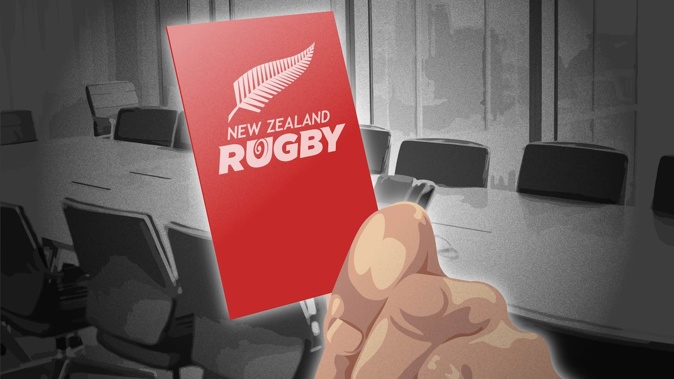
New Zealand rugby’s provincial unions have convincingly voted through their polarising governance proposal to spark a civil war showdown with the game’s professional players.
At a Special General Meeting in Wellington today, New Zealand’s 26 provincial unions voted – via secret ballot – on two proposals for boardroom reform after the Pilkington review clearly stated rugby’s governance was not fit-for-purpose.
Eight months on from that damning report, following protracted negotiations, lobbying, threats and posturing, the provinces comfortably garnered enough support to meet the required two-thirds (67 per cent or 61 votes) majority of the 90 votes to usher through proposal two, which ensures three NZ Rugby board members must first serve on a provincial board.
Billed as the most significant decision since the game turned professional 28 years ago, the provinces enforced their constitutional control by a landslide result.
Proposal two passed by 69 votes to 21 while the NZ Rugby, NZ Rugby Players’ Association and Super franchise-backed proposal one that aligned with the Pilkington report for nine fully independently appointed board members was rejected by 31 votes to 59.
As signposted on Tuesday the provincial union way forward instigates far-reaching consequences, with the entire NZ Rugby board required to reapply for their respective roles.
NZ Rugby chairwoman Dame Patsy Reddy had previously stated, should Proposal 2 prevail, she would resign from her post as she does not support any compromise to a fully independent board.
With the Pilkington report and Proposal 1 recommendations rejected, attention turns to NZRPA chief executive Rob Nichol after he threatened to form a breakaway organisation to run the game’s professional players.
Nichol firmly believes the union’s proposal is a land grab - and a move to control future board appointments. The provinces have also positioned themselves in direct opposition to four former All Blacks captains, including Richie McCaw, Sean Fitzpatrick and Ian Kirkpatrick who publicly supported the push for independence.
“The expert panel laid out what we needed to do perfectly in their recommendations. Those recommendations got support from NZR, NZRC, Māori Rugby Board, Super clubs, NZRPA and a good group of PUs,” Nichol said following the vote. “It was a great opportunity for the game to make the changes required. It’s incredibly unfortunate we haven’t taken that opportunity and ended up with what the experts labelled status quo or worse.”
In a late turn, the Herald understands Auckland flipped its first vote at the 11th hour after pressure from its life members, which include Sir Graham Henry, Sir Bryan Williams, Grant Fox and Gary Whetton, to support proposal one.
The NZRPA had previously outed Auckland, Wellington, Canterbury, Hawke’s Bay, Bay of Plenty and North Harbour as the heavyweight unions backing proposal two, but the threat to form a breakaway organisation clearly galvanised strong support from the majority of other provinces.
While Auckland’s original backflip wasn’t anywhere close to enough for the NZ Rugby, NZRPA and Super franchise-backed proposal to edge over the line, other provinces, including Taranaki, Waikato, Otago and Manawatu voted in favour of proposal one to underline the split views throughout the country.
The majority of provincial unions who backed their proposal will be satisfied with the outcome but, given the NZRPA’s hardline stance, the fallout and, indeed, this war is merely beginning.
Rowena Duncum, spokesperson for the unions behind the second proposal, claimed the new system would ensure a modern and independent board that would represent the 150,000 people who play and run the game throughout New Zealand.
“The heart of the game remains anchored in the people who play it,” Duncum said. “The NZ Rugby Board oversees the entire game, bottom to top, so we are pleased the NZ Board will remain anchored in the entire game. We will have a board capable of overseeing NZR’s international and commercial activity, and its management of the domestic game.
“This decision ensures the NZ Rugby Board understands and appreciates how community rugby is affected by the decisions of it and the NZR.
Duncum indicated a new board will be appointed as soon as possible. The unions expect plenty of applications from the hundreds of professionals with current or past experience running rugby boards and clubs.
She said everyone who cared about community rugby would commit to the democratically chosen proposal.
“The sun will rise on the games this weekend, as it always has. 150,000 people will be out on the playing fields, and the provincial unions will continue their work, unchanged.”
Liam Napier has been a sports journalist since 2010, and his work has taken him to World Cups in rugby, netball and cricket, boxing world title fights and Commonwealth Games.
Take your Radio, Podcasts and Music with you









